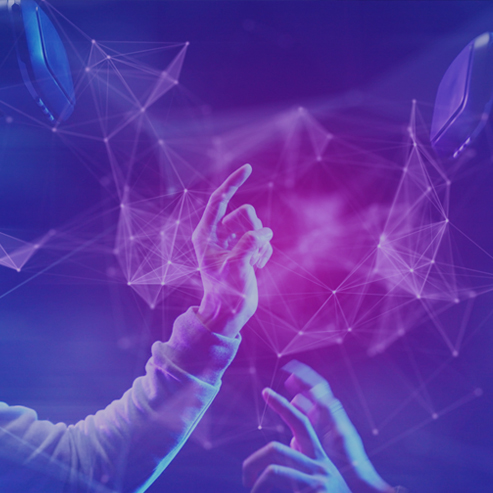Home > À propos > Notre actualité > IA & adaptation culturelle
IA & adaptation culturelle
30 MAI 2023
L'intelligence artificielle (IA) éveille un intérêt grandissant parmi les entreprises et grandes marques mondiales ; ces dernières voient en elle des avancées significatives, notamment dans la génération de textes et d'images. Les outils tels que Dall-E 2, ChatGPT et maintenant Bard captivent autant le grand public que les experts en référencement, rédaction et design, mais l'IA offre un potentiel bien plus vaste en la matière.
Dans un contexte économique axé sur la recherche d’un retour sur investissement rapide, les entreprises, en particulier celles en quête d'expansion internationale, se tournent vers l'IA pour localiser efficacement leur contenu dans de nouveaux pays, optimiser les coûts et lancer de meilleures campagnes marketing. Les ingénieurs, qui repoussent les limites de l'IA, s'engagent dans une course constante à la complexité algorithmique. À titre d’exemple, les confrontations comme celle entre le champion d’échecs Kasparov et l’IA Deep Blue sont devenues monnaie courante, soulignant la rapidité avec laquelle les innovations et spécialités d'aujourd'hui peuvent être surclassées.
Il est donc crucial pour les entreprises d'envisager dès maintenant les différents cas d'utilisation de l'IA, en particulier dans les domaines de la communication et du marketing, afin de permettre une meilleure adaptation locale de leurs ressources. Ceux qui ont su aller au-delà de la simple création de sites Web feront rapidement la différence, à l'instar des pionniers du e-commerce il y a 20 ans.
L’ère de l’intelligence artificielle personnalisée
Les marques envisagent dès maintenant de disposer de leur propre intelligence artificielle pour interagir avec les clients, proposer des offres personnalisées et favoriser la fidélisation. Ces IA joueront un rôle clé dans la création de contenu, la gestion des données et l'exploitation de l'écosystème de chaque marque, quelles que soient les réalités culturelles de leur marché.
Il est alors primordial de faire évoluer les outils d’IA afin de les utiliser en accord avec l’ADN de telle ou telle entreprise. Aujourd’hui, les IA génériques telles que ChatGPT ou Bard offrent des réponses similaires à tous les utilisateurs. Pour réussir, les marques devront transformer leurs IA en véritables expertes de leurs domaines, ce qui leur permettra de refléter leur identité et leur voix à travers un vocabulaire spécifique et un registre grammatical distinct.
Au vu du coût que représenterait la création d’une IA de bout en bout, les organisations peuvent dès maintenant entraîner les IA génériques en leur apportant les spécifications nécessaires tout en veillant à leur utilité et à leur pertinence dans leur domaine d'application. Bien que cela demande du temps, celles qui réussiront bénéficieront à l’avenir d’un avantage concurrentiel non négligeable.
IA, transformation numérique et adaptation culturelle
Gardons aussi à l'esprit que le Web, en apparence mondialisé, est en réalité fragmenté en de nombreuses langues et spécificités culturelles. Par exemple, les internautes sinophones sont aussi nombreux que les locuteurs de l'anglais, de l'hindi ou de l'espagnol. Chaque IA doit donc s'appuyer sur des ensembles de données spécifiques pour s'adapter à chaque pays, tout en maintenant la cohérence globale de l'image de marque. C'est ainsi que les organisations pourront réellement embrasser le e-multiculturalisme.
Chez Datawords, nous sommes convaincus que l'intelligence artificielle est un outil puissant pour réussir l'adaptation culturelle des marques à l'échelle mondiale. Grâce à notre expertise en localisation et à notre profonde compréhension des différentes cultures, nous aidons les marques dans cette transition vers une localisation réussie grâce à l'IA afin de créer des expériences client pertinentes et cohérentes.
Contactez-nous dès aujourd'hui pour découvrir comment nous pouvons vous aider à rayonner sur les marchés mondiaux grâce à notre Multicultural IngenuityTM.







































